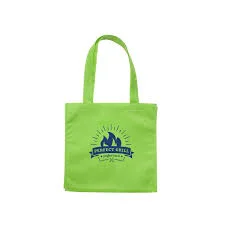Introduction to Econo Shopper
The term “econo shopper” refers to consumers who prioritize affordability and value in their purchasing decisions. In a world where economic fluctuations can significantly impact personal finances, the rise of the econo shopper is more relevant than ever. This article explores the characteristics, trends, and strategies of the econo shopper, supported by statistics and insights from industry experts.
Who is the Econo Shopper?
Econo shoppers are typically budget-conscious individuals who seek to maximize their purchasing power. They often make informed decisions based on research, price comparisons, and value assessments. According to a survey conducted by the National Retail Federation (NRF), approximately 70% of consumers reported being more price-sensitive in recent years, highlighting the shift towards more economical shopping habits.
Demographics of Econo Shoppers
The demographic profile of the econo shopper varies widely, encompassing individuals from different age groups, income levels, and lifestyles. However, certain trends are emerging:
- Millennials and Gen Z: Younger consumers tend to prioritize experiences over possessions, often seeking affordable options to maintain a balanced budget. A report from Deloitte indicates that 57% of millennials prefer to save money rather than spend it on luxury items.
- Families: Parents, especially those with multiple children, are more likely to adopt econo shopping habits as they look to stretch their budgets. According to a study by the USDA, families can save an average of 30% on grocery bills by making strategic purchasing decisions.
Key Characteristics of Econo Shoppers
Econo shoppers exhibit several key characteristics that define their purchasing behavior:
1. Price Sensitivity
Econo shoppers are acutely aware of prices and often utilize tools such as price comparison apps and websites to ensure they are getting the best deals. A study by Statista revealed that 62% of consumers regularly compare prices before making a purchase.
2. Focus on Value
Value is paramount for econo shoppers. They look for products that offer the best quality for the price. This often leads them to favor private labels or discount retailers over premium brands. Research from Nielsen shows that private label sales have grown by 20% over the past five years, driven by the demand for cost-effective options.
3. Research-Oriented
Before making a purchase, econo shoppers tend to conduct thorough research, reading reviews, checking ratings, and considering product longevity. According to a Consumer Reports survey, 83% of consumers consult reviews before buying, indicating the importance of informed decision-making among this demographic.

Trends Influencing Econo Shopping
Several trends are shaping the behavior of the econo shopper in today’s market:
1. The Rise of E-commerce
Online shopping has transformed the retail landscape, making it easier for econo shoppers to find deals and compare prices. E-commerce platforms often provide access to user reviews and competitive pricing, allowing consumers to make more informed choices. The U.S. Census Bureau reported that e-commerce sales increased by 32.4% in 2020 alone, underscoring this shift.
2. Social Media Influence
Social media platforms like Instagram and TikTok are increasingly influencing shopping habits. Econo shoppers often turn to influencers and online communities for recommendations on affordable products. A survey by Influencer Marketing Hub found that 49% of consumers depend on influencer recommendations when making purchasing decisions.
3. Sustainability Concerns
Many econo shoppers are also becoming more environmentally conscious, seeking sustainable products that provide both value and ethical considerations. According to a report from McKinsey, 66% of consumers are willing to pay more for sustainable brands, reflecting the growing trend towards responsible consumption.

Strategies for Retailers to Appeal to Econo Shoppers
Retailers looking to attract econo shoppers can employ various strategies to meet their needs:
1. Competitive Pricing
Offering competitive prices is essential for attracting price-sensitive consumers. Retailers should regularly assess their pricing strategies and consider implementing promotions or loyalty programs to encourage repeat purchases.
2. Clear Value Proposition
Retailers must communicate the value of their products effectively. Highlighting benefits such as quality, longevity, and customer satisfaction can help sway the decision of an econo shopper.
3. Enhanced Online Experience
An optimized online shopping experience, complete with detailed product information and user reviews, is crucial. Retailers should invest in user-friendly websites and mobile apps to facilitate easy navigation and comparison.
Conclusion
The econo shopper represents a growing segment of the consumer market that prioritizes affordability, value, and informed decision-making. As economic conditions continue to fluctuate, understanding the characteristics and behaviors of these consumers will be essential for retailers. By adapting to the needs of the econo shopper, businesses can thrive in a competitive landscape. What strategies have you found most effective when shopping on a budget?
FAQs
1. Who qualifies as an econo shopper? Econo shoppers are typically individuals or families who prioritize affordability and value in their purchasing decisions.
2. What factors influence the behavior of econo shoppers? Key factors include price sensitivity, a focus on value, extensive research, and the influence of e-commerce and social media.
3. How can retailers attract econo shoppers? Retailers can attract econo shoppers by offering competitive pricing, clearly communicating product value, and enhancing the online shopping experience.
4. Are there specific demographics that make up the econo shopper segment? While econo shoppers can be from various demographics, millennials, Gen Z, and budget-conscious families are prominent groups.
5. How important is sustainability to econo shoppers? Sustainability is increasingly important to many econo shoppers, with a significant percentage willing to pay more for eco-friendly products.


